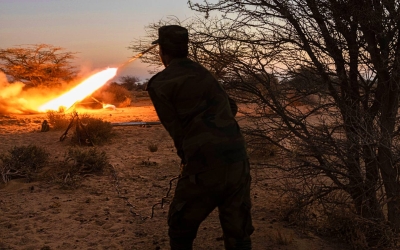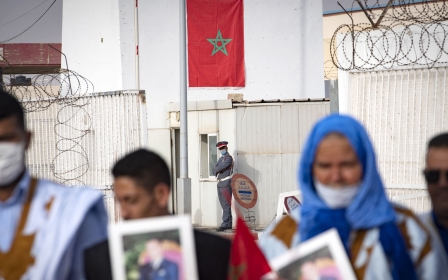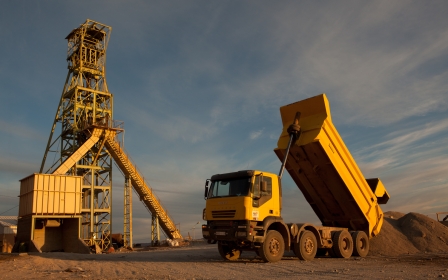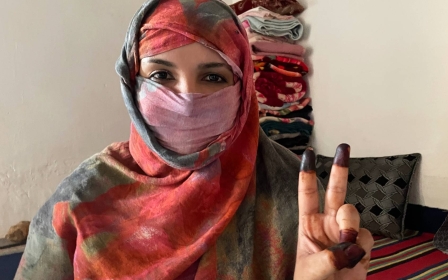US issues waiver for defence cooperation with Morocco
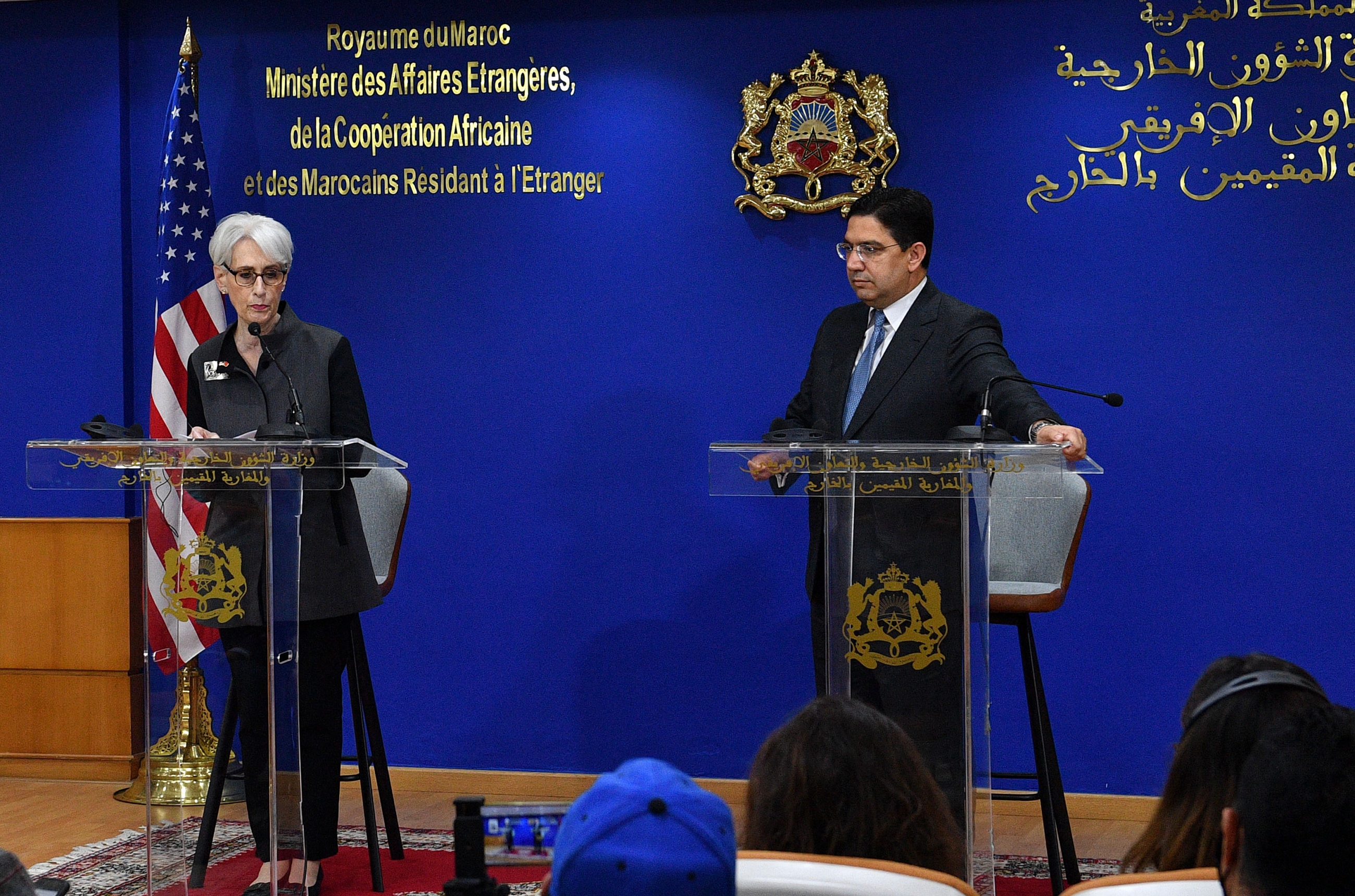
US defence funds will continue to support Morocco's participation in joint military exercises, after the administration of President Joe Biden moved to clear a hurdle to the relationship put in place by Congress last year following concerns over Western Sahara.
"The Secretary of Defense has just signed a waiver that allows U.S. Africa Command to continue cooperation and training with Morocco," Bardha Azari, a spokeswoman for US Africa Command, told Middle East Eye.
"Our military partnership with Morocco is strong, and we are confident this unshakable partnership will continue to flourish in the years ahead," she added.
Morocco is a major non-Nato ally and a close partner with Washington on counterterrorism operations. It participates in more than 100 military exercises with the US each year. Along with Tunisia and Senegal, it co-hosts Africa Lion - the largest military exercise in Africa.
'The fact that funding for military exercises has now been waived is a signal... I think it will speed up the process of arms sales'
- Edward Gabriel, former US ambassador to Morocco
Last year, Congress passed an amendment to US defence legislation, known as the National Defense Authorisation Act (NDAA), that sought to limit funds supporting Morocco's participation in any multilateral exercise administered by the Department of Defense.
New MEE newsletter: Jerusalem Dispatch
Sign up to get the latest insights and analysis on Israel-Palestine, alongside Turkey Unpacked and other MEE newsletters
The amendment allowed for funds to be released only if the secretary of defence, in coordination with the secretary of state, certified Rabat was committed to pursuing a "mutually acceptable political solution in the Western Sahara".
It also included a carve-out allowing a waiver to be issued on national security grounds.
The move was led by Democratic Senator Patrick Leahy and Republican Jim Inhofe over the Trump administration's recognition of Morocco's claim of sovereignty over Western Sahara in exchange for Rabat's normalisation of ties with Israel.
Western Sahara is a sparsely populated territory that was annexed by Morocco in 1975 after the end of Spanish colonial rule.
Rabat controls about 80 percent of the territory with the remaining landmass under the governance of the Polisario Front, a rebel movement which established the self-declared Sahrawi Arab Democratic Republic in 1973.
Around 175,000 Sahrawi refugees live in camps across the border in Algeria. Rabat accuses its neighbour, and arch-rival, of arming the rebels, a charge Algeria denies.
'Not a priority for Biden'
The Biden administration has been treading carefully on Western Sahara, with officials saying there was "no change" in the US position, but refusing to flat-out recognise Morocco's claim of sovereignty.
"We are in this kind of purgatory of US recognition of Moroccan sovereignty," Geoff Porter, founder of North Africa Risk Consulting, told MEE.
While the White House has stalled plans to open a US consulate in Dakhla, it unveiled an undivided map in January that included the Western Sahara in Morocco's borders.
Analysts say the administration's main efforts have centred around the appointment of new UN special envoy for the Western Sahara, Staffan de Mistura - formerly the UN special envoy for Syria.
"The administration invested as many resources as possible in appointing a new UN envoy and it wasn't an easy task," Ricardo Fabiani, North Africa director at the International Crisis Group, told MEE.
"Once that was accomplished, they backed off. Western Sahara is not a priority for the administration. They do not see it as a serious risk to regional security or their own national security," he added.
And following Russia's invasion of Ukraine, the Biden administration has been trying to patch up strained ties with its Middle Eastern and North African allies. US Deputy Secretary of State Wendy Sherman visited Morocco on Tuesday as part of a long-planned trip to the region.
'Speed up the process of arms sales'
In a meeting with Morocco's foreign minister, Sherman voiced support for Morocco's autonomy plan for the Western Sahara as "serious, credible, and realistic, and a potential approach to satisfy the aspirations of the people of the region".
The Polisario Front has demanded a referendum, which the UN also envisioned in 1991 when it mediated a truce between the two sides.
It would include questions over independence for the territory. But that vote has gained little traction as Rabat and the Polisario have conflicting visions over who makes up the indigenous population and should be allowed to vote.
Edward Gabriel, a former US ambassador to Morocco, told MEE that Sherman's visit was a sign of the strength of bilateral ties - despite some of the recent stumbling blocks in Congress.
"This is a very important relationship for both countries and that's why the move to issue a waiver on military exercises doesn't surprise me," he said.
Morocco is also looking towards the US as it continues with a rapid modernisation of its military. In October 2020 the two countries signed a ten-year defence cooperation agreement.
The US already provides the county with 90 percent of its arms imports and Rabat recently purchased Patriot missiles and 25 new F-16 aircraft from Washington.
One sale that has slowed is the purchase of four MQ-9B SeaGuardian drones and precision-guided munitions. Congress has yet to be officially notified of the deal, and a State Department spokesperson refused to comment on it.
Gabriel said the waiver on military exercises could provide a boost to arms sales. "The fact that funding for military exercises has now been waived is a signal to Congress and Morocco that they will be dealing with them [Rabat] on military matters," he said.
"I think it will speed up the process of arms sales."
Middle East Eye delivers independent and unrivalled coverage and analysis of the Middle East, North Africa and beyond. To learn more about republishing this content and the associated fees, please fill out this form. More about MEE can be found here.


